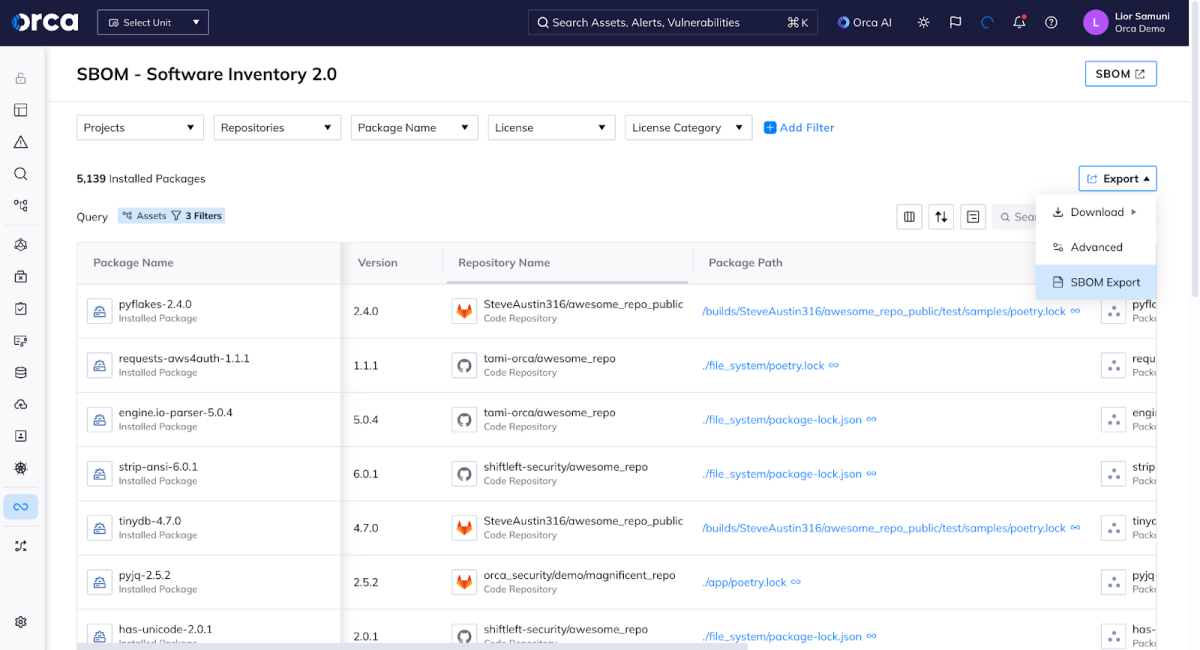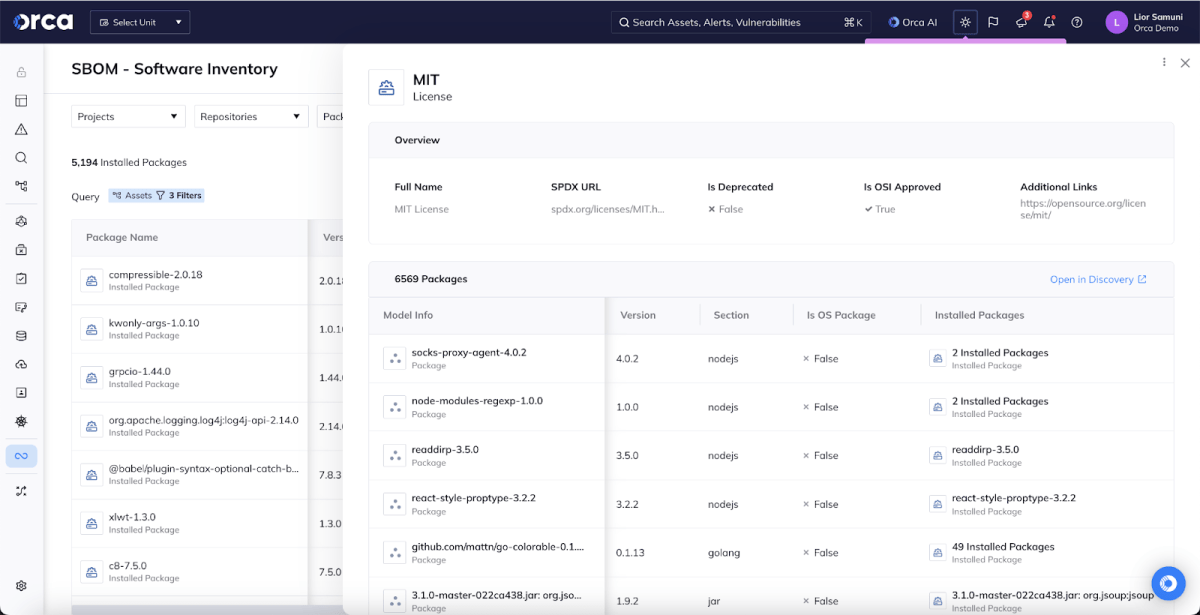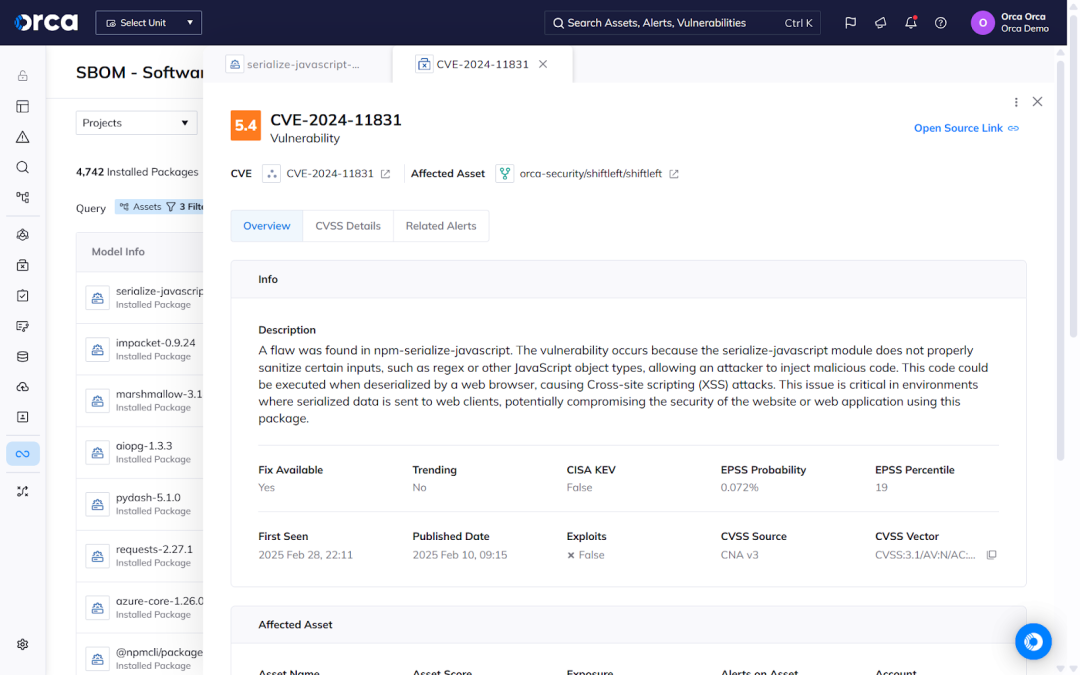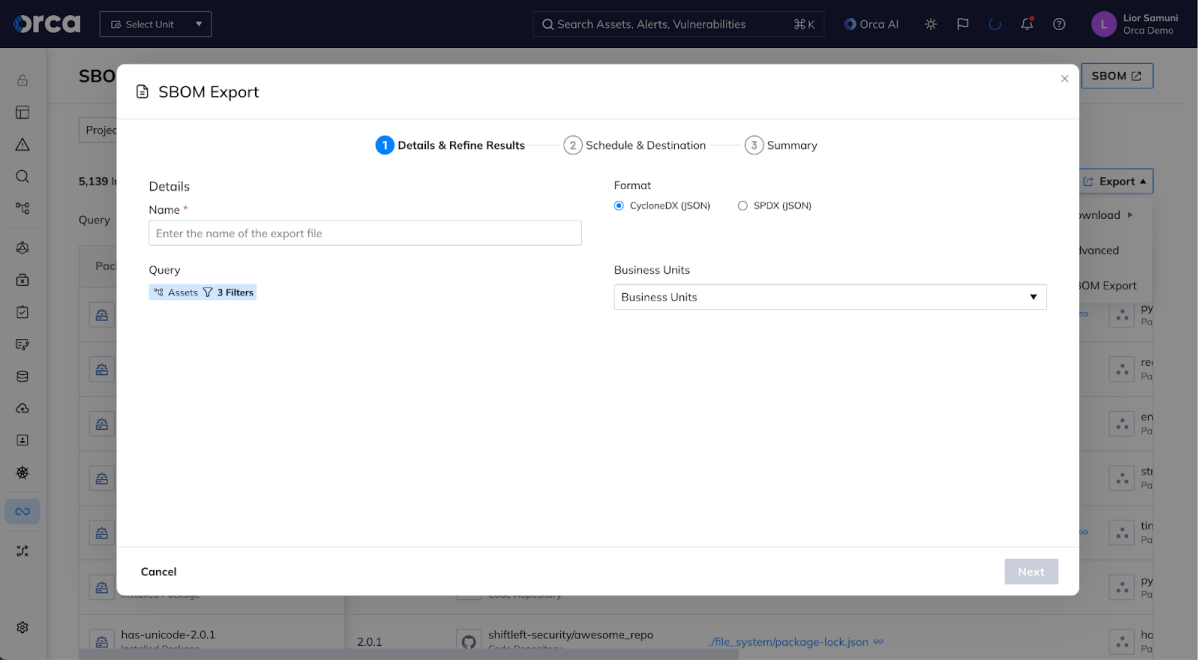According to a recent World Economic Forum’s Global Cybersecurity Outlook 2025 report, software supply chain vulnerabilities are the leading cybersecurity risk for most large organizations. They must contend with a lack of visibility into supply chains and control over vendors’ security practices.
A Software Bill of Materials (SBOM) plays a crucial role in reducing software supply chain risks, enhancing vulnerability management, and supporting compliance efforts. SBOM provides a comprehensive inventory of an application’s components, including dependencies, licensing restrictions, and other critical information. Several regulatory frameworks and standards, such as PCI-DSS, DORA, FedRAMP, and NIST, either require or recommend SBOM use.
The Orca Cloud Security Platform provides full visibility into installed packages within code repositories through its SBOM capabilities, along with advanced reporting features. This is part of our broader Application Security (AppSec) functionality, helping organizations maintain control over their software supply chain before deployment.

What is SBOM?
SBOM is a comprehensive inventory that outlines all components within a software application. It includes detailed information about third-party and open-source dependencies, such as component names, versions, licenses, sources, and the relationships between them.
SBOMs enhance visibility into the software supply chain, enabling organizations to:
- Quickly identify and remediate vulnerabilities
- Evaluate and manage security risks
- Ensure compliance with software licensing
- Streamline patch management and software updates
By providing this transparency, SBOMs play a critical role in validating the security, compliance, and resilience of modern software systems.
Inside Orca’s SBOM capabilities: Visibility, insights, and compliance reporting
Orca’s SBOM feature offers important capabilities to enhance the security and compliance of cloud-native applications.
Centralized and deep visibility across the software development lifecycle (SDLC)
Challenge: Modern software projects often rely on third-party packages, which can introduce security vulnerabilities and complex licensing obligations. Without clear visibility into these components early in development, security teams struggle to identify and remediate risks, allowing them to make their way into production.
Solution: Orca’s SBOM capabilities give security teams clear, centralized visibility into third-party packages across code repositories, starting from the earliest stages of the software development lifecycle (SDLC). This includes key details like package name, version, license type, and exact code location.
With this information, security and development teams can spot components that might introduce security, compliance, or legal issues early on. Packages can be easily filtered by project, repository, package name, license type, category, and other relevant fields, making it simpler to review and manage risks.
Additionally, Orca’s SBOM enables security teams to gain detailed visibility into every third-party package. This includes details on each package’s installed version, dependencies, type, and associated licenses, helping teams manage licensing obligations and mitigate compliance risks such as intellectual property violations.

Teams can also view vulnerabilities associated with each package, including vulnerability severity, available fixes, patched versions, fix release statuses, and more.

Advanced export options
Challenge: Organizations are expected to maintain up-to-date and detailed records of their software components to satisfy the requirements of customers, regulators, partners, and auditors. However, without full visibility into the SDLC, it becomes difficult to deliver accurate and timely information on demand.
Solution: Orca makes it easy to schedule and export SBOM reports in popular formats like SPDX, CycloneDX, CVS, and JSON, helping teams stay on top of their software tracking. Users can customize reports for specific use cases or audiences, with filters to include or exclude package details such as name, version, dependencies, and repository information. They can also scope reports by Business Unit to focus on a specific code repository or entity within the Orca Platform. Orca also enables users to schedule reports to send on a recurring basis to destinations like Slack, storage buckets, or email.

Command your cloud with Orca
The Orca Cloud Security Platform is an open platform that identifies, prioritizes, and remediates security risks and compliance gaps across AWS, Azure, Google Cloud, Oracle Cloud, Alibaba Cloud, and Kubernetes. The Orca Platform leverages our patented SideScanning™ technology to provide complete coverage and comprehensive risk detection.
Learn more
To see how this platform can work for your organization, schedule a personalized 1:1 demo.






